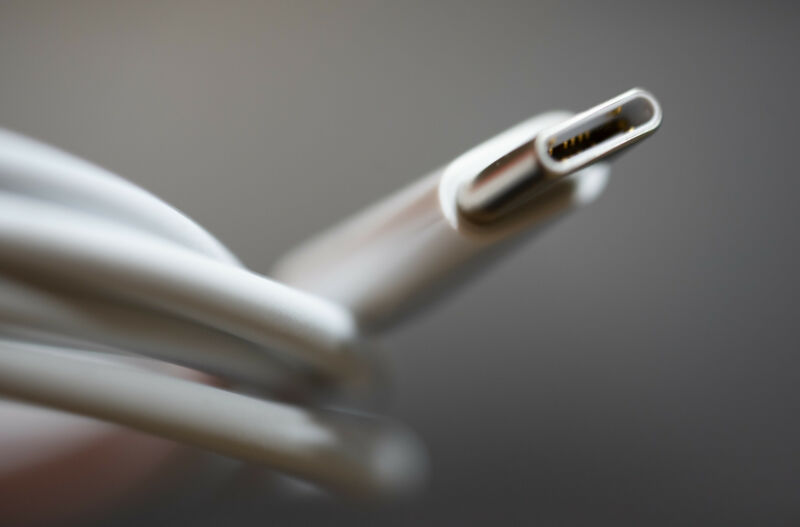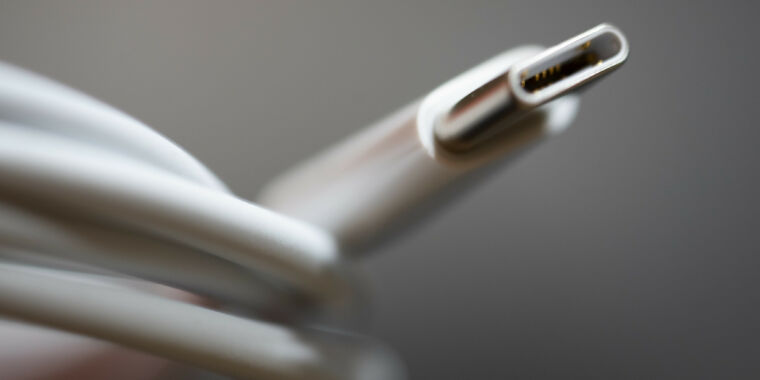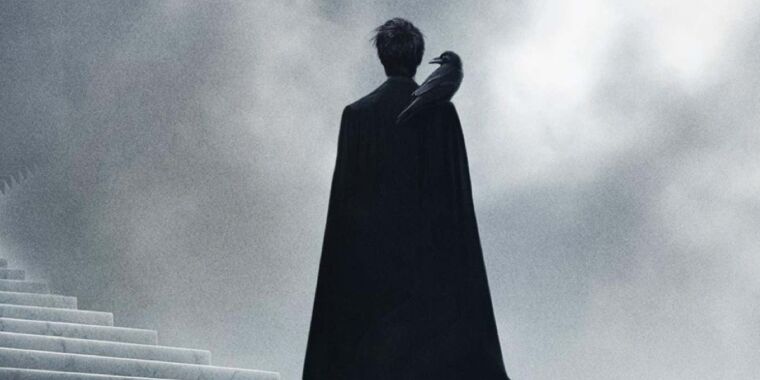
The European Union (EU) has reached an agreement that will make USB-C charging no longer just a convenience but a requirement for iPhones and all other mobile phones by the fall of 2024. The plan extends to additional consumer electronics using wired charging, including digital cameras, tablets, and, at a later date, laptops.
Today’s announcement shows the EU Parliament and Council agreeing to terms for universal USB-C charging, something the parliament has spent 10 years arguing for. In September, the European Commission announced intent to enact legislation requiring USB-C charging. The next step will be for the EU Parliament and Council to formally approve the agreement.
Once approved, the policy will also apply to handheld video game consoles, e-readers, earbuds, headphones, and headsets. Products in the named categories “that are rechargeable via a wired cable will have to be equipped with a USB Type-C port, regardless of their manufacturer,” the EU Parliament said in today’s announcement.
Laptops will also have to comply within 40 months after the policy takes effect. With many USB-C charging laptops being ultralights, it’ll be interesting to see how budget designs handle the policy.
The policy will also standardize fast-charging speeds, so people can expect their devices to charge at the same speed across compatible chargers.
In its announcement, Parliament argued that the legislation will give customers more information and choice while reducing e-waste:
Consumers will be provided with clear information on the charging characteristics of new devices, making it easier for them to see whether their existing chargers are compatible. Buyers will also be able to choose whether they want to purchase new electronic equipment with or without a charging device.
These new obligations will lead to more re-use of chargers and will help consumers save up to 250 million euro a year on unnecessary charger purchases. Disposed of and unused chargers are estimated to represent about 11,000 tonnes of e-waste annually.
The news is particularly interesting for the iPhone, one of the last remaining and popular holdouts of USB-C charging. In September, Apple showed its unhappiness with the EU’s proposed legislation, telling the Associated Press, “We remain concerned that strict regulation mandating just one type of connector stifles innovation rather than encouraging it, which in turn will harm consumers in Europe and around the world.”
However, Thierry Breton, the European commissioner for the Internal Market, in a follow-up press conference pointed out that under the policy Apple could continue having its own Lightning plug but would need to offer USB-C, as well.
It is unclear how Apple will respond to the EU policy. In May, it was reported that Apple was testing USB-C iPhones for 2023. A separate USB-C phone for the EU seems like a costly, complicated longshot. And it would be hard to supply enough power and data via wireless options only. Should iPhones move to USB-C, longtime iPhone users may find themselves with a lot of Lightning-based wires, adapters, and chargers that are suddenly useless.








